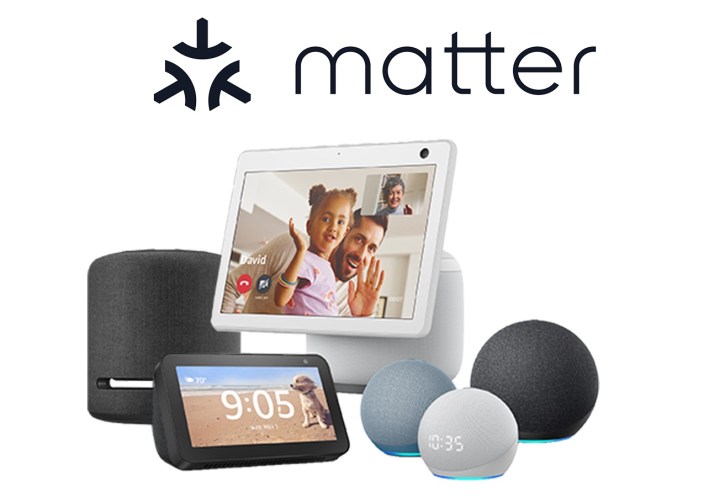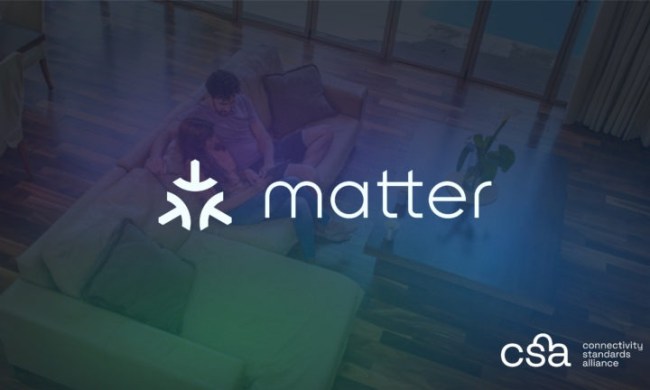If you’ve been following our CES 2022 coverage, then you’ve seen one particular name crop up around almost every smart home announcement: Matter. The Matter movement is built around the concept of a single, unifying standard for smart home devices. It seeks to simplify the operation and setup of the smart home, tearing down the proverbial walled gardens that have risen up in the market.
At the present moment, more than 220 different companies — including the big three in smart home of Amazon, Google, and Apple — have all joined the Matter Alliance and pledged their commitment to an open-source approach to development. The number of companies was only 180 in May. In the space of seven months, more than 40 other companies have joined the push. In total, there are more than 2,400 engineers across all these companies working to make the smart home that much smarter. That’s a lot of support.
The initial release of Matter is still months away at least (estimated at the end of the second quarter of this year), but there are 134 unique products from 53 different companies slated to be among the first to launch.
What companies have joined Matter?
More companies have pledged to work with Matter than I could reasonably list here, but a few of the big names include:
- Amazon
- Apple
- Nanoleaf
- Philips Hue
- Samsung
- Comcast
- Arlo
- Schlage
- Sengled
- LG
Keep in mind that there are more than 200 other companies that are part of Matter, too.
Why does Matter matter?
Matter focuses on three main points: interoperability, security, and setup.
Interoperability
I’ve said before that I’m not the standard audience for smart home tech. Most people don’t have as many smart home applications on their phone as I do (21 at last count, and that’s after removing several.) The average smart home probably has at least six apps divided between a robot vacuum, smart lights, a security camera, etc. Imagine, for a moment, if all of those different devices could be accessed and controlled from a single application — and also set up from that same application.
There would be no need for proprietary apps that take up space on your phone. The smart home is only as smart as its dumbest part, and jumping between numerous apps just to perform basic tasks (especially if the devices can’t be controlled through a hub app) is definitely less than intelligent.
Security
Data privacy is more important than ever before. As we invite more and more technology into our homes that can listen and track us, we need the assurance that any information gathered will be kept secure. Matter utilizes a number of security measures including blockchain ledgers and zero trust to ensure a streamlined connection between devices. Advanced security and encryption protocols will help safeguard user data and prevent unauthorized access.
Setup
At present, it’s hit-or-miss on whether smart home tech is easy to set up. Some is as simple as turning it on and then accessing it through Thread. Other devices make you jump through hoops while rubbing your belly and patting your head. Matter promises to simplify device setup — no more circus auditions required just to get a smart device up and running. It’s a welcome addition and one that will help to demystify smart home technology for those who are less than tech-savvy.
When Matter first releases, it will support door locks, a bevy of different sensor types, thermostats, lights, smart hubs and bridges, garage door openers, smart plugs and smart TVs, and blinds. Unfortunately, cameras, water leak sensors, robot vacuums, and home appliances are not supported at launch — but they will be in the future.
The future of smart home lies in ease of use
The ultimate goal of the smart home is to make life easier on every front. Some basic setup will always be required (unless someone drops a robot that can open packages for you.) The market is on the way there, but it still has a ways to go before it fully arrives. The advent of proprietary software between different companies makes sense from a business perspective; after all, each company wants to lock consumers into their ecosystem to keep the cash flowing. It doesn’t benefit the customer, however.
Matter can change that. I hope it does change that.
If the smart home is going to continue growing and advancing, then more people need to get on board. Until it’s easier to use and implement within every home, however, there’s always going to be an element of intimidation. People who don’t consider themselves experts in technology often think setting up a smart home device is too complicated.
Fears about always-listening devices only exacerbate the issue further. Between the promised ease of use, greater levels of security, and the freedom to choose what devices you want in your home, Matter is the most important trend to emerge from CES 2022.




